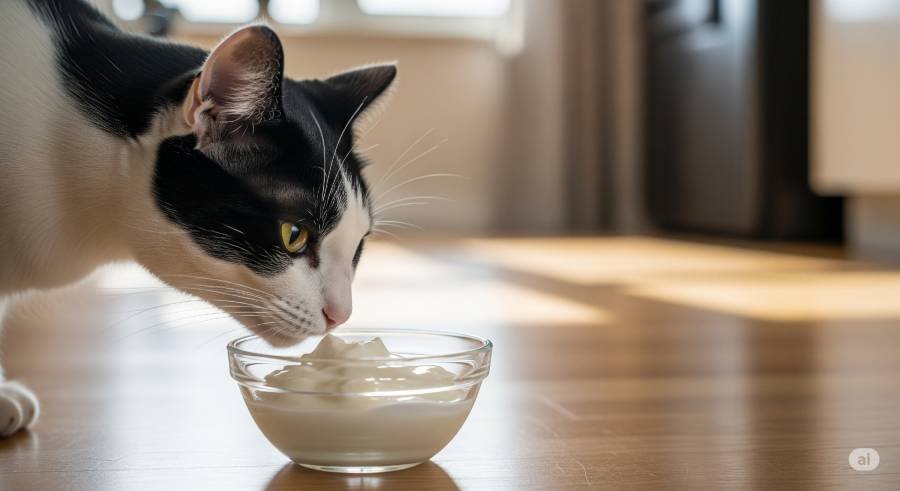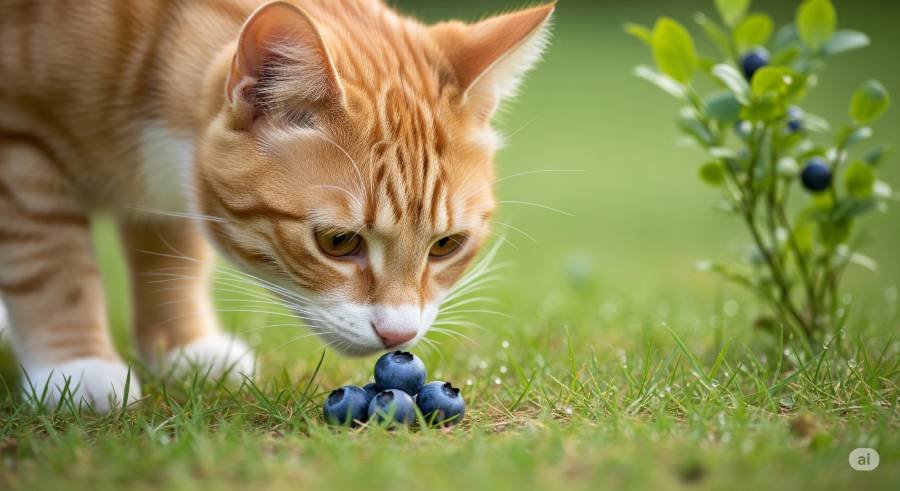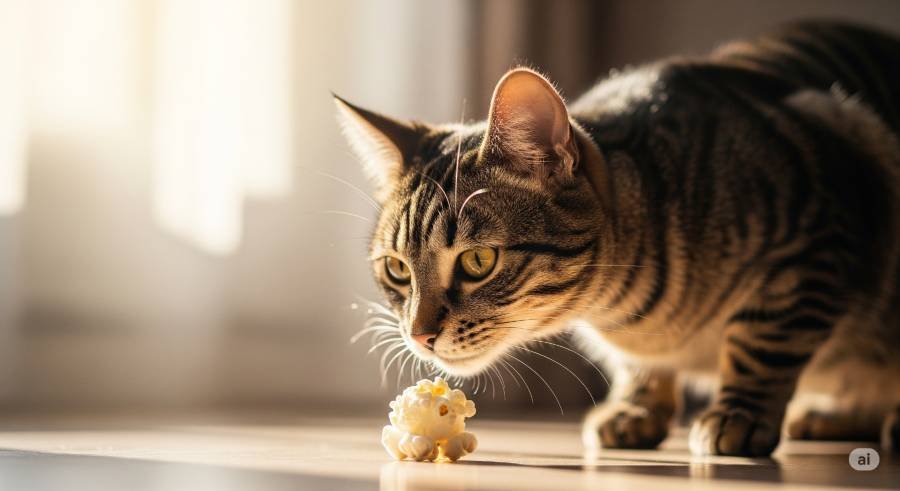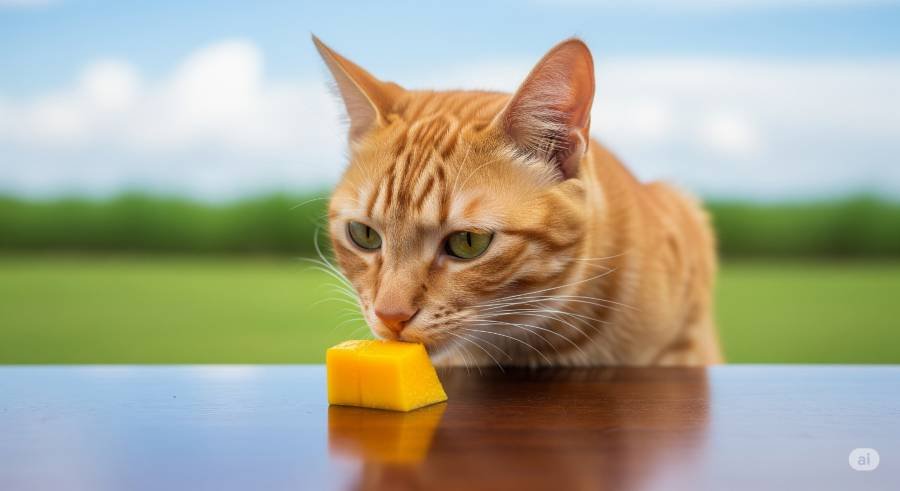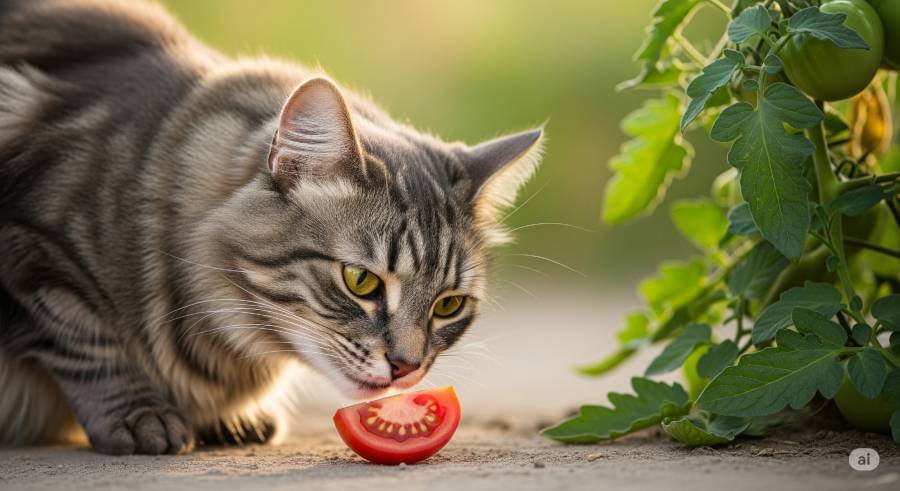As loving cat parents, we often wonder if we can share our favorite snacks with our feline companions. The good news is that some human foods are safe and even beneficial for cats in moderation, while others pose significant health risks.
Understanding what human food can cats eat is crucial for ensuring their health and well-being, as their nutritional needs differ significantly from our own.
Cats are obligate carnivores, meaning their primary dietary requirement is animal-based protein. While their diet should mainly consist of high-quality commercial cat food, certain human foods can be offered as occasional treats, adding variety and potential minor nutritional perks.
However, it’s vital to distinguish between safe and dangerous options.

Safe Human Food Options for Your Feline Friend
Here’s a detailed look at human foods that are generally safe for cats in small, properly prepared portions:
Cooked Lean Meats and Poultry
These are the cornerstone of a cat’s natural diet. Plain, cooked chicken, turkey, and lean beef (without bones, skin, or seasonings) are excellent sources of protein. Just ensure they are fully cooked to eliminate the risk of harmful bacteria. For instance, a tiny piece of cooked turkey can be a delightful treat.
Cooked Fish (Certain Types)
Fully cooked, plain, boneless fish like salmon and tuna (in water, not oil) can be offered occasionally. Salmon is rich in omega-3 fatty acids, which can benefit their coat and joint health. However, avoid raw fish due to the risk of parasites and thiaminase deficiency. It’s also important to consider mercury levels and offer fish in moderation. You can also explore if can cats eat tuna safely.
Cooked Eggs
Scrambled or hard-boiled eggs, cooked thoroughly, are a good source of protein for cats. Ensure they are plain, without any added salt or seasonings. If you’re curious about incorporating eggs, you might also wonder can cats eat raw chicken, but cooked is always the safer option.
Certain Vegetables (in moderation)
While cats don’t require vegetables, some can be safe and even offer minor benefits:
- Pumpkin: A small amount of plain, canned pumpkin (not pumpkin pie mix) can help with digestion, both for constipation and diarrhea.
- Cooked Carrots: Small pieces of cooked carrots can be an occasional crunchy treat.
- Cooked Peas: A few cooked peas can be a safe and sometimes enjoyed snack.
- Steamed broccoli: Tiny, plain, steamed florets of broccoli can be offered sparingly.
- Cooked Sweet Potatoes (plain): A very small amount of plain, cooked sweet potatoes can be tolerated.
- Cucumbers: Small, peeled pieces of cucumbers can be a refreshing, low-calorie treat, especially for hydration.
- Lettuce: Some cats might nibble on a bit of lettuce, which is mostly water and fiber.
Certain Fruits (in small quantities)
Fruits are generally high in sugar and not a necessary part of a cat’s diet, but some can be offered as very occasional treats:
- Blueberries: A few blueberries can provide antioxidants.
- Strawberries: Small pieces of ripe strawberries can be offered.
- Watermelon (seedless and rindless): A tiny piece of watermelon can be hydrating.
- Bananas: A very small slice of banana can be a sweet treat for some cats. You might also wonder if other tropical fruits like can cats eat mango are safe (the flesh is, in moderation).
- Apples (peeled and seedless): A tiny piece of peeled apples can be offered. Be sure to avoid the core and seeds.
- Cantaloupe: Some cats enjoy the mild sweetness of cantaloupe in small amounts.
- Peaches (flesh only, no pit or skin): A very small piece of ripe peaches (flesh only) can be an occasional treat, but be vigilant about the toxic pit and potentially irritating skin.
Cooked Grains (in small amounts)
Cats can digest some cooked grains
- White Rice (plain): Small amounts of plain, cooked rice can be easily digestible and sometimes recommended by vets for mild digestive upset.
- Oatmeal (plain, cooked): A tiny amount of plain, cooked oatmeal can be offered.
- Bread (plain, cooked): A very small piece of plain, cooked bread is generally safe, but offers little nutritional value.
Dairy (with caution)
While many cats are lactose intolerant, some may tolerate small amounts of certain dairy products:
- Plain Yogurt (with live and active cultures, low-lactose): A tiny bit of plain, unsweetened yogurt with live and active cultures, especially Greek yogurt due to its lower lactose content, might be tolerated by some cats.
- Hard Cheeses (in very small amounts): Small nibbles of hard cheeses like cheddar or Swiss, which are lower in lactose, might be okay for some cats, but their high fat and salt content should be considered. You might wonder can cats eat cheese safely, and the answer is sparingly.
Human Foods to Absolutely Avoid Feeding Your Cat
Many human foods are harmful and even toxic to cats. Avoid giving your feline any of the following:
- Chocolate: Contains theobromine and caffeine, which are toxic to cats and can cause serious health issues, including death. This is a strict no-go – can cats eat chocolate? Absolutely not.
- Onions and Garlic: These contain compounds that can damage a cat’s red blood cells, leading to anemia. This includes all forms: raw, cooked, powdered. It’s crucial to know can cats eat garlic or can cats eat onions – the answer is a definite NO.
- Grapes and Raisins: Can cause kidney failure in cats, even in small amounts.
- Alcohol: Even small amounts can cause severe liver and brain damage.
- Caffeine: Can cause hyperactivity, tremors, and heart problems.
- Xylitol: An artificial sweetener found in many sugar-free products, it is highly toxic to cats and can cause a rapid drop in blood sugar and liver failure.
- Macadamia Nuts: Can cause weakness, tremors, and vomiting.
- Raw Dough: Can expand in the stomach, causing pain and potentially life-threatening blockages. The yeast in raw dough can also produce alcohol, which is toxic.
- Bones (cooked): Cooked bones can splinter and cause internal injuries or choking.
- Fat Trimmings and Fatty Foods: Can lead to digestive upset and pancreatitis. Can cats eat bacon? Due to its high fat and salt content, it’s best avoided. Can cats eat ham? Similar to bacon, it’s high in sodium and fat. Can cats eat pork? While cooked lean pork might be okay in tiny amounts, its higher fat content makes it less ideal than other lean meats.
- Milk and Most Dairy Products: Most adult cats are lactose intolerant and can experience digestive upset (diarrhea, vomiting) after consuming milk or other high-lactose dairy products. While some might tolerate a tiny lick of can cats eat milk, it’s generally best to avoid it.
- Peanut Butter (some types): While plain peanut butter in very small amounts might not be toxic, some brands contain xylitol, which is deadly for cats. Also, its sticky texture can be a choking hazard. Can cats eat peanut butter? Exercise extreme caution and always check the ingredient list for xylitol.
- Avocado: Contains persin, which can be mildly toxic to cats in large amounts, causing vomiting and diarrhea. Can cats eat avocado? It’s best to avoid it.
- Citrus Fruits (in large amounts): While a tiny sniff might not hurt, large amounts of oranges, lemons, limes, and grapefruit can cause stomach upset due to their citric acid content. Can cats eat oranges? It’s generally not recommended.
- Salty Snacks (in excess): Too much salt can lead to sodium ion poisoning. Can cats eat french fries or can cats eat pepperoni? These are typically too high in salt and unhealthy fats.
- Spices and Seasonings: Many spices can irritate a cat’s digestive system. As mentioned, garlic and onion are particularly dangerous. Can cats eat cinnamon? While a tiny amount might not be overtly toxic, it’s best avoided as it can cause irritation.
Tips for Safely Sharing Human Food with Your Cat
If you decide to offer your cat a small amount of safe human food, follow these guidelines:
- Moderation is Key: Human food should only be occasional treats and should not make up more than 10% of your cat’s daily caloric intake.
- Plain and Simple: Always offer food plain, without any added salt, sugar, spices, oils, or sauces.
- Cooked Thoroughly: Ensure all meats and eggs are fully cooked to eliminate the risk of foodborne illnesses.
- Remove Bones, Skin, and Pits: These can be choking hazards or toxic.
- Cut into Small, Manageable Pieces: This prevents choking and aids digestion.
- Introduce New Foods Gradually: Monitor your cat for any signs of digestive upset or allergic reactions.
- Know Your Cat’s Health: Avoid giving human food to cats with underlying health conditions (like diabetes, kidney disease, or allergies) without consulting your veterinarian.
- Always Provide Fresh Water: Ensure your cat always has access to clean, fresh water.
- If in Doubt, Leave it Out: If you’re unsure whether a human food is safe for your cat, it’s always best to err on the side of caution and avoid feeding it.
Safe Treat Alternatives for Your Beloved Feline
Instead of always reaching for human food, consider offering your cat commercially available cat treats. These are specifically formulated to be nutritionally balanced and safe for feline consumption.
There are various types and flavors to choose from, ensuring you can find something your cat enjoys. You can also explore options like freeze-dried meat treats made specifically for cats, which align with their carnivorous nature.
If you’re looking for healthy, single-ingredient options, small pieces of cooked chicken, turkey, or certain types of commercially prepared fish cat treats are excellent choices. Remember that even cat treats should be given in moderation.
Understanding what human food can cats eat empowers you to make informed decisions about your feline companion’s diet. While sharing a tiny, safe snack occasionally can be a bonding experience, always prioritize their health and nutritional needs by focusing on a balanced cat food diet and being mindful of the potential risks associated with many human foods. When in doubt, always consult with your veterinarian for personalized dietary advice.
By understanding these guidelines, you can ensure your feline friend enjoys a long, healthy, and happy life.
Remember that their dietary needs are unique, and while a little shared enjoyment is nice, their primary nutrition should always come from sources specifically formulated for them.
